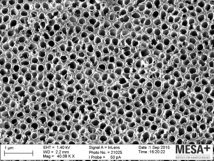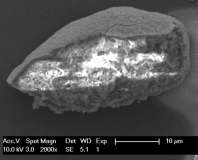This research area covers the development of knowledge and expertise of the electrode-liquid interface and its application in electrochemical micro-and nanodevices. The three basic detection principles are studied: potentiometry, amperometry and conductometry. Besides developing electrochemical sensors, the integration into lab-on-a-chip systems is implemented using cleanroom microfabrication. This opens up new operational principles such as redox cycling and the use of ultra-micro electrodes. In addition, integration of electrochemical cells in a Lab-on-a-chip enables the conversion of electro-active species.
Application of these electrochemical sensors and systems are in the field of health care, life sciences as well as in the field of environment and sustainability.
Research projects
- Redox control for pH regulation using 4-aminothiophenol
- Nano-wires as wide range pH Sensors
- Single catalyst particle diagnostics: Integrating Impedance Sensing & Sorting
- Sensor technology for NO, O2 and pH sensing
- A preliminary study of a novel ultra-sensitive ion-sensitive field-effect transistor
- Electroosmotic Mixing in Microfluidic Devices
- Growing fish in a sustainable manner

Membrane for novel super capacitor electrodes

Single broken fluid catalytic cracking particle

Particle position determined by impedance spectroscopy
For more information, visit our webpage http://www.utwente.nl/ewi/bios/, or contact:






